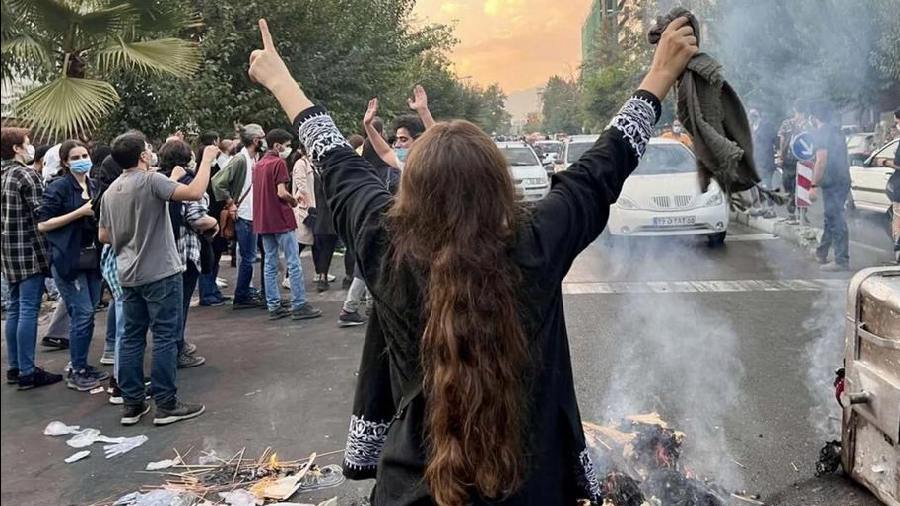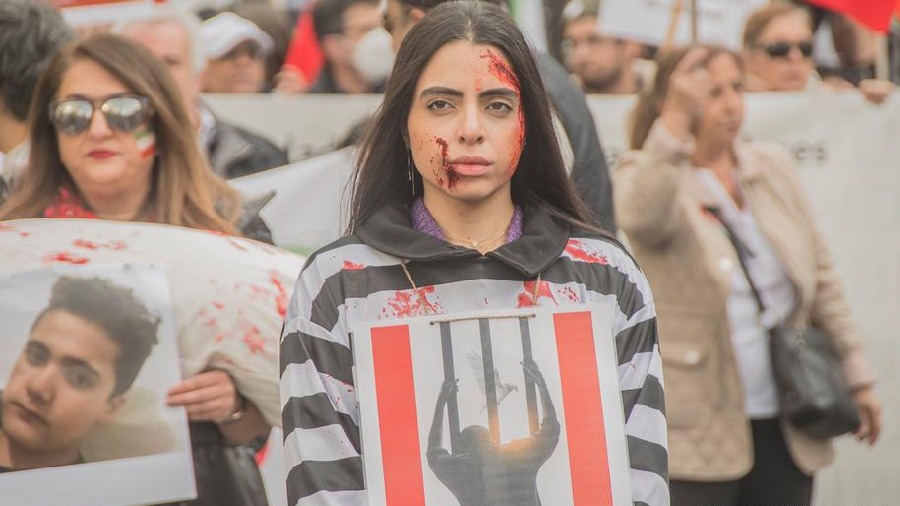Back in mid-September, Iran's so-called morality police arrested 22-year-old Jina Mahsa Amini in Tehranfor wearing what they deemed inappropriate clothing. They then took her to a police station, where she slipped into a coma. Three days later, on September 16, she died in hospital. Amini's death sparked widespread anger, leading to anti-government rallies that almost three months later continue to embroil dozens of cities.
The announcement to disband the "morality police" came just a day after Attorney General Mohammad Jafar Montazeri told local reporters that "both parliament and the judiciary are working [on the issue]" of whether the law requiring women to cover their heads needs to be changed.
"Morality police have nothing to do with the judiciary" and have been abolished, Montazeri was quoted as saying by the ISNA news agency.
So, what exactly is the "morality police" force and what were they tasked to do?
What does the 'morality police' do?
"Gasht-e-Ershad," which translates as "guidance patrols," and is widely known as the "morality police," were were a unit of Iran’s police force established under hardline president Mahmoud Ahmadinejad tasked with enforcing the laws on Islamic dress code in public. The until began patrolling the streets in 2006.
According to Iranian law, all women above the age of puberty must wear a head covering and loose clothing in public, although the exact age is not clearly defined. In school, girls typically have to wear the hijab from the age of 7, but that does not mean they need to necessarily wear it in other public places.
A major part of Iran’s social regulations is based on the state's interpretation of Islamic Sharia law, which requires both men and women to dress modestly. However, in practice, the "morality police" have in the past primarily target women.
There are no clear guidelines or details on what types of clothing qualify as inappropriate, leaving a lot of room for personal interpretation and sparking accusations that the "morality" enforcers arbitrarily detain women.
Those detained by the "morality police" are given a notice or, in some cases, are taken to a so-called education and advice center or a police station, where they are required to attend a mandatory lecture on hijab and Islamic values. They then have to call someone to bring them "appropriate clothes" to get released.
No details have been provided on the implementation of the decision to disband the "morality police" force or what it means for the requirement for women to wear headscarves in the country.
Morality police also enforce dress code
In addition to cracking down on hijab violations, the government also promotes its version of Islamic dress code in schools, national media and public events.
However, many Iranian women found ways to defy the ultraconservative dress codes — pushing the boundaries by wearing tight-fitting garments and using the headscarf as a colorful accessory, exposing a lot of hair. Again, there are no hard-and-fast rules on how much hair can be exposed.
A 2018 survey published by Iran's parliament showed that between 60 to 70% of Iranian women do not follow "the Islamic dress code" strictly in public.
Activists have fought against compulsory hijab wearing for decades, with several of them currently in prison.
Under President Ebrahim Raisi’s ultra-conservative administration, the "morality police" increased its presence in big cities. In response, thousands of women went out in the streets without a headscarf, with some sharing videos of themselves online to encourage others.
After a video of a woman pleading to the "morality police" officer for her sick daughter's release went viral in July, calls grew for the dissolution of the force.
In an unprecedented move, hundreds of religious women began to speak up against compulsory hijab wearing online. Even some conservative figures, including members of parliament, began criticizing the law and the police force, saying that it has had a negative impact on public attitudes toward the hijab and religion in general.












